Guillaume Sanchez
Stay on topic with Classifier-Free Guidance
Jun 30, 2023



Abstract:Classifier-Free Guidance (CFG) has recently emerged in text-to-image generation as a lightweight technique to encourage prompt-adherence in generations. In this work, we demonstrate that CFG can be used broadly as an inference-time technique in pure language modeling. We show that CFG (1) improves the performance of Pythia, GPT-2 and LLaMA-family models across an array of tasks: Q\&A, reasoning, code generation, and machine translation, achieving SOTA on LAMBADA with LLaMA-7B over PaLM-540B; (2) brings improvements equivalent to a model with twice the parameter-count; (3) can stack alongside other inference-time methods like Chain-of-Thought and Self-Consistency, yielding further improvements in difficult tasks; (4) can be used to increase the faithfulness and coherence of assistants in challenging form-driven and content-driven prompts: in a human evaluation we show a 75\% preference for GPT4All using CFG over baseline.
Robust Training of Vector Quantized Bottleneck Models
May 18, 2020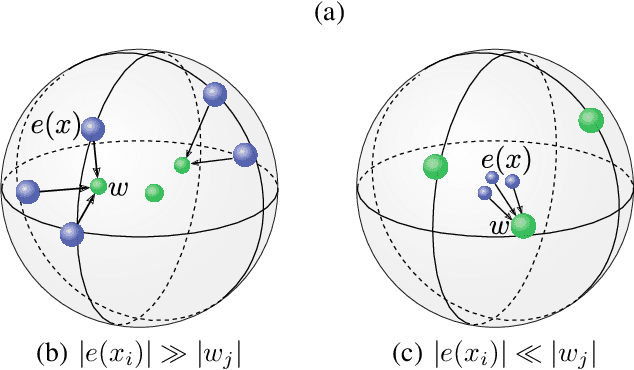
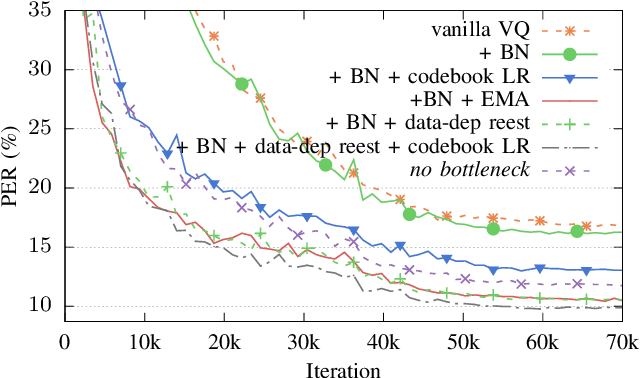
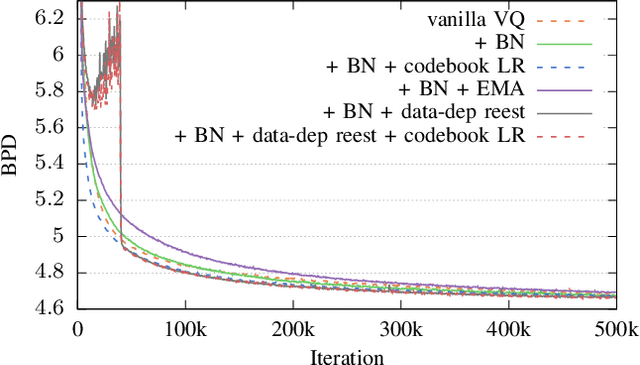
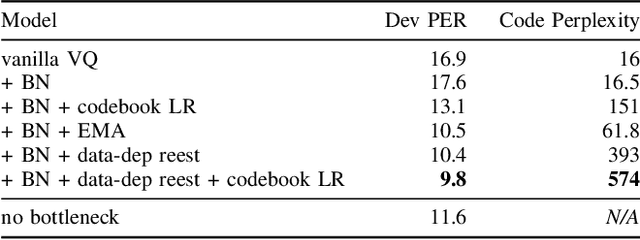
Abstract:In this paper we demonstrate methods for reliable and efficient training of discrete representation using Vector-Quantized Variational Auto-Encoder models (VQ-VAEs). Discrete latent variable models have been shown to learn nontrivial representations of speech, applicable to unsupervised voice conversion and reaching state-of-the-art performance on unit discovery tasks. For unsupervised representation learning, they became viable alternatives to continuous latent variable models such as the Variational Auto-Encoder (VAE). However, training deep discrete variable models is challenging, due to the inherent non-differentiability of the discretization operation. In this paper we focus on VQ-VAE, a state-of-the-art discrete bottleneck model shown to perform on par with its continuous counterparts. It quantizes encoder outputs with on-line $k$-means clustering. We show that the codebook learning can suffer from poor initialization and non-stationarity of clustered encoder outputs. We demonstrate that these can be successfully overcome by increasing the learning rate for the codebook and periodic date-dependent codeword re-initialization. As a result, we achieve more robust training across different tasks, and significantly increase the usage of latent codewords even for large codebooks. This has practical benefit, for instance, in unsupervised representation learning, where large codebooks may lead to disentanglement of latent representations.
Deep Learning Classification With Noisy Labels
Apr 23, 2020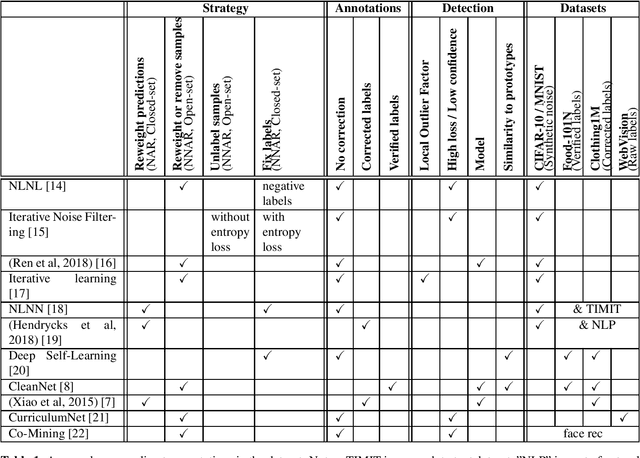
Abstract:Deep Learning systems have shown tremendous accuracy in image classification, at the cost of big image datasets. Collecting such amounts of data can lead to labelling errors in the training set. Indexing multimedia content for retrieval, classification or recommendation can involve tagging or classification based on multiple criteria. In our case, we train face recognition systems for actors identification with a closed set of identities while being exposed to a significant number of perturbators (actors unknown to our database). Face classifiers are known to be sensitive to label noise. We review recent works on how to manage noisy annotations when training deep learning classifiers, independently from our interest in face recognition.
 Add to Chrome
Add to Chrome Add to Firefox
Add to Firefox Add to Edge
Add to Edge